The Creation of Man
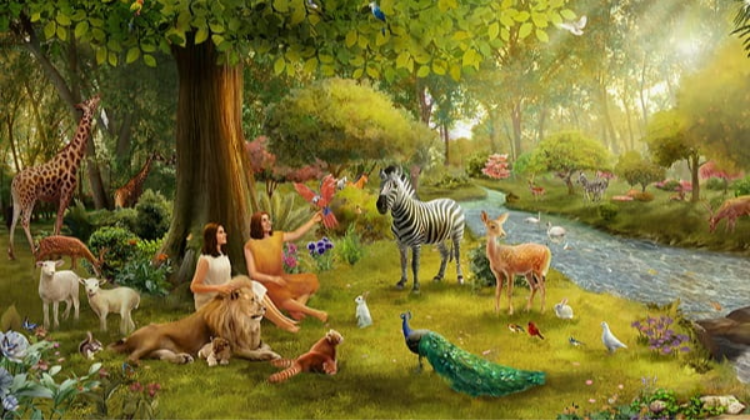
The Creation of Man
Various religious texts and scientific theories agree that long before the creation of man, the Creator fashioned this vast universe. He governed and continues to govern this expansive creation through numerous "Mala'ikah" or angels. In Persian, they are known as "Fereshteh," and in English, "Angels." The gods and goddesses believed in by Indian, Roman, and Greek cultures are essentially the same as the Mala'ikah or angels. They are countless in number and are actually natural forces through which Allah maintains order in all of His creations, and they have no free will. Each angel performs the duty assigned to them without the slightest deviation, as they lack independent will. For instance, the force of gravity is an angel. The Creator has assigned it the duty of attracting and holding everything together. From the beginning of creation, this angel has been performing its duty and will continue to do so until the end. It does not possess the willpower to take a break even for a fraction of a moment, as Allah did not grant it such will.
order in all of His creations, and they have no free will. Each angel performs the duty assigned to them without the slightest deviation, as they lack independent will. For instance, the force of gravity is an angel. The Creator has assigned it the duty of attracting and holding everything together. From the beginning of creation, this angel has been performing its duty and will continue to do so until the end. It does not possess the willpower to take a break even for a fraction of a moment, as Allah did not grant it such will.
Similarly, other natural forces like fire, wind, water, and electricity are all angels, comparable to the deities in other religions that oversee natural forces. For example, in Hindu scriptures, Varun is the deity of wind, Surya is the sun deity, the Greeks' Neptune is the deity of the sea, and the Romans' Vulcan is the deity of fire. In Islam, too, there are angels for fire, wind, and other elements. These angels are numerous, naturally, because the infinite creation requires countless natural forces. In Indian religions, their number is believed to be 330 million. Christians also mention angels in the millions. The 13th-century priest Albertus Magnus calculated (how he did so, only Allah knows) that the exact number of angels is 399,920,004, which is about 70 million more than in Hindu beliefs. The Shinto religion of Japan has 8 million deities.
During his ascension, the Messenger Muhammad (PBUH) saw thousands of angels entering and exiting the Baitul Mamur Mosque after offering prayers. Commenting on their number, he mentioned that once an angel offers prayers and leaves, it never gets another opportunity, indicating their vast numbers. From time immemorial, Allah has been administrating his vast creation in an orderly manner through countless angels. Then, at a certain time, He willed to create humans. Why He had this will is unknown to me and possibly to anyone else. In His message, He has only hinted at it. He once said, "I did not create this for mere play." Naturally, for one who created time, the question of passing it does not arise. He also said, "I wish to test who among you does good deeds." In essence, only He knows why He created this universe and, specifically, mankind, His best and worst creation simultaneously. However, it is undeniable that He did create it.
 When speaking of that time, He tells us in the Quran that when Allah told His angels that He intended to create a representative on Earth, they replied, "Why do you need to create a representative? They will cause corruption and bloodshed." This response from the angels contains a significant part of the creation's mystery. Therefore, let us pause here and understand this crucial matter thoroughly. According to Islamic, Judeo-Christian beliefs, Adam's (PBUH) one son killed another. This first bloodshed initiated a series of bloodsheds that have not ceased to this day, and this unrest and bloodshed remain the primary problem for humanity. The two words the angels used against human creation were corruption and bloodshed. Together, they imply that humans will cause injustice, unrest, and bloodshed. This has indeed been the case. From Adam's (PBUH) son to this day, not only has the bloodshed continued, but injustice, unrest, and corruption have also persisted, posing the greatest problem for humanity.
When speaking of that time, He tells us in the Quran that when Allah told His angels that He intended to create a representative on Earth, they replied, "Why do you need to create a representative? They will cause corruption and bloodshed." This response from the angels contains a significant part of the creation's mystery. Therefore, let us pause here and understand this crucial matter thoroughly. According to Islamic, Judeo-Christian beliefs, Adam's (PBUH) one son killed another. This first bloodshed initiated a series of bloodsheds that have not ceased to this day, and this unrest and bloodshed remain the primary problem for humanity. The two words the angels used against human creation were corruption and bloodshed. Together, they imply that humans will cause injustice, unrest, and bloodshed. This has indeed been the case. From Adam's (PBUH) son to this day, not only has the bloodshed continued, but injustice, unrest, and corruption have also persisted, posing the greatest problem for humanity.
The angels did not argue against human creation by saying that humans would not worship in temples, mosques, churches, pagodas, or synagogues, or that they would not fast. They said humans would cause unrest, injustice, and bloodshed. The real problem is not worship but these issues. Did Allah not understand what the angels were saying? He did, and yet He created humans, disregarding their objections. The information provided by the Creator about His representative's creation tells us several foundational things. Firstly, the importance and honor of this new creation, humans, is so great and His affection so immense that while He created the vast creation, including angels, by merely saying "Be!" and it was, He fashioned Adam (PBUH) with His own hands and breathed His spirit into him. This is significant because He used the term "My spirit," indicating that all divine qualities and attributes are present in humans. Even the independent willpower was transferred to humans along with that spirit. This is what Allah refers to when He says, "I have entrusted My trust to man." None of the other creations, including angels, possess these divine qualities and powers. They follow the set laws and rules, which we call natural laws. No one can deviate from these laws because they were not granted the willpower to do so. The only being with such free will is Allah Himself. When He breathed His spirit into humans, all His qualities, including free will, were transferred to them. This is the trust He gave to humans, which no other creation dared to accept. However, humans accepted it, thereby proving themselves to be unjust and ignorant.
Before Allah breathed His spirit into humans, they were merely another creation among the countless others. But with the infusion of the Creator's spirit, humans transformed into a unique creation, becoming representatives of Allah, embodying every divine quality and power, albeit in a very limited capacity. To illustrate, if a drop of water is taken from a vast ocean and analyzed chemically, it would contain every substance found in the ocean. However, that drop cannot create storms or sink ships like the ocean. Similarly, a candle lit from the sun's flame carries all the sun's qualities but cannot illuminate or heat the universe like the sun. Nevertheless, that candle's flame is derived from the sun, the same substance.
Secondly, the Creator taught this new creation, humans, the names of all things. This means He taught them the properties and functions of every created thing, essentially science, which underpins His vast creation. By stating this, He indicated that humanity would gain knowledge of all created things. A thousand years ago, humans knew the names of certain things, and today they know much more. In the future, they will learn even more. After teaching humans science, He asked His angels to name all things. They could not because, as previously mentioned, angels are merely natural forces with no knowledge or will beyond their assigned tasks.
Thirdly, Allah commanded His angels to prostrate before this new creation, Adam (PBUH), symbolizing their acceptance of human superiority due to the divine spirit within humans, which they lack. Secondly, it meant that natural forces were placed at the service of humans. Fire, water, air, electricity, magnetism, earth, and countless other natural forces are thus dedicated to serving humanity. Only Iblis refused to prostrate to Adam, disobeying Allah's command. A question may arise: If angels are natural forces, how did Iblis, one of them, disobey Allah's command without free will? The answer is that all angels are made of light, except Iblis, who was made of fire. Iblis was originally a jinn, not an angel. Through intense devotion and austerity, he elevated himself to the rank of an angel. Being made of fire, he retained his pride despite lacking free will. His pride surfaced when asked to bow to Adam, leading him to challenge Allah by claiming that if given the power to enter the minds and bodies of Allah's creation, he would prove that they would disobey Allah. Allah accepted this challenge and granted Iblis the power to tempt humans into disobedience.
The subsequent events, in brief, are that Allah created Eve as a companion for Adam (PBUH) and allowed them to live in Paradise with one restriction. Iblis, with Allah's permission, tempted them to break this one restriction, resulting in their exile to Earth for a set period, until the Day of Judgment. Allah then promised to send guidance for them. The question arises: Why would He need to guide beings endowed with His own spirit? The reason is that although humans possess all divine qualities and powers, they are minimal. Humans could have devised a way of life if they knew all the natural laws governing creation, but they do not. Secondly, Iblis is constantly tempting them. More importantly, Iblis' challenge is to make humans reject Allah's way of life, creating their systems, leading to inevitable injustice, war, and bloodshed. Through His Messengers, Allah sent a way of life, repeatedly instructing humans to believe in Him as the sole deity and lawgiver and to follow this way of life for peace and security, free from the fear of corruption, unrest, and bloodshed. This divine way of life, repeatedly sent through Messengers from Adam (PBUH) to Muhammad (PBUH), is named "Islam," meaning peace. Accepting and establishing this way of life ensures peace in national, familial, and personal spheres. If not, unrest, injustice, and war, the reasons the angels objected to human creation, will persist. Thus, from Adam (PBUH) to the final Messenger Muhammad (PBUH), the name of this divinely ordained way of life has been Islam, meaning peace.
This is the essence of the matter. The remaining aspects of the faith, such as prayer and fasting, and the myriad of associated rituals are secondary and ancillary. The proof of this is evident in the fact that, although these rituals are diligently observed with deep sincerity across various religions worldwide, peace has not been established on earth.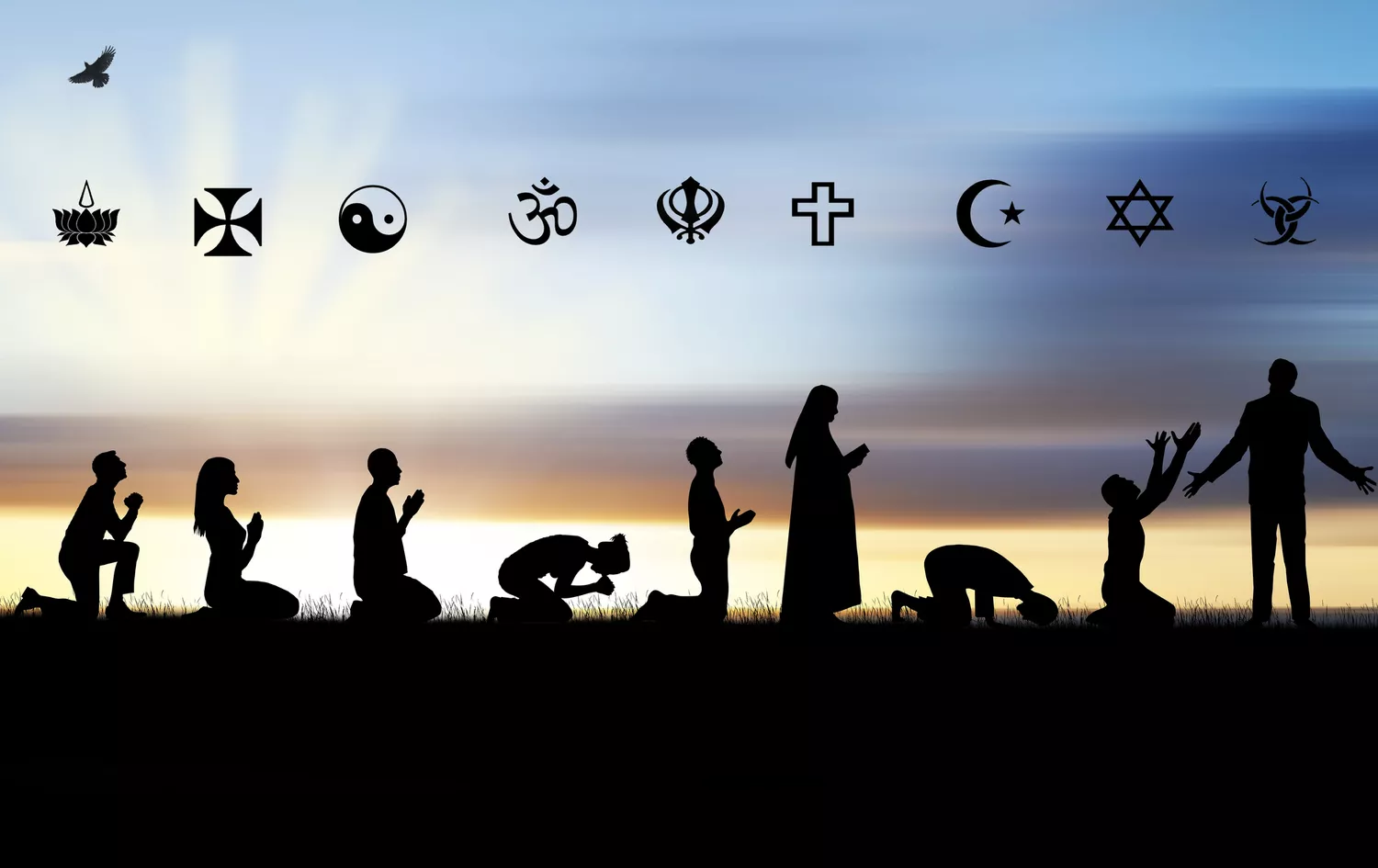 On the contrary, unrest, conflict, and bloodshed continue to increase incessantly. Moreover, such powerful weapons have been created that humanity now stands on the brink of destruction. Even if every person of every religion were to fully observe their respective rituals and ceremonies, it would not stop the increase in unrest, injustice, and bloodshed on earth; it would continue to grow as it does today. This is because, instead of following the life-system sent by Allah through His Messengers, the people of every religion have adopted human-made political and socio-economic systems for their national lives, neglecting the fundamental principles. When the Creator told His angels about His plan to create His representative, humans, they did not say that this creation would fail to worship in temples, mosques, churches, pagodas, or synagogues or would not observe rituals. They said humans would cause unrest, injustice, and bloodshed among themselves. The primary issue is not about worship but about living in peace, in Islam, on earth.
On the contrary, unrest, conflict, and bloodshed continue to increase incessantly. Moreover, such powerful weapons have been created that humanity now stands on the brink of destruction. Even if every person of every religion were to fully observe their respective rituals and ceremonies, it would not stop the increase in unrest, injustice, and bloodshed on earth; it would continue to grow as it does today. This is because, instead of following the life-system sent by Allah through His Messengers, the people of every religion have adopted human-made political and socio-economic systems for their national lives, neglecting the fundamental principles. When the Creator told His angels about His plan to create His representative, humans, they did not say that this creation would fail to worship in temples, mosques, churches, pagodas, or synagogues or would not observe rituals. They said humans would cause unrest, injustice, and bloodshed among themselves. The primary issue is not about worship but about living in peace, in Islam, on earth.
Thus, understanding the angels' argument against the creation of humans is crucial to comprehending the purpose of human creation and the meaning of human life. Allah created His representative Adam (PBUH) and sent him and his wife to earth, telling them to propagate and that He would send guidance on how to live life without injustice, oppression, or bloodshed. This means He took the responsibility of providing a system of life that humans must follow to live in peace. It is natural that He would not fail in the task He undertook. After sending humans to earth, Allah gave His first creation, Adam (PBUH), a life system. We can assume this system was small and concise, as it was intended for a few people. As Adam's (PBUH) descendants multiplied and spread across the earth, Allah did not forget His responsibility. He continued to send His guidance to different isolated groups of Adam's (PBUH) children through His Messengers, providing life systems that, if followed, would allow them to live in peace and avoid unrest, corruption, and bloodshed.
Meanwhile, Iblis (Satan) also did not forget his pledge. He continuously gave people various ideas and suggestions to reject or at least distort the life system given by Allah, leading them into injustice, corruption, and bloodshed. Whenever Iblis succeeded in a society, Allah sent a new Messenger to rectify it.
It is essential to examine the basic structure of the life systems Allah sent through various Messengers to different groups. Observation reveals that the fundamental basis is the acknowledgment and belief in the Creator, Allah, as the sole and supreme Lord. In this context, He uses the term 'Ilah,' commonly translated as 'God.' However, this translation does not capture the full meaning because, over time, every religion has become distorted. One distortion is the exclusion of political, economic, and national matters from Allah's system, focusing solely on personal matters and formal worship. Allah used 'Ilah' to signify the one whose decrees and directives in every aspect of life are inviolable.

From Adam (PBUH) to Muhammad (PBUH), the central tenet has always been 'There is no god but Allah (La ilaha illallah),' with the name of the contemporary Messenger added later. This declaration emphasizes that there is no lawgiver except Allah. A person cannot accept some directives and reject others; doing so means not truly accepting Him as their Ilah. This makes sense because, for a life system to prevent unrest, injustice, and bloodshed, its political and socio-economic structure must be primary. Thus, the life systems sent through Messengers were based on acknowledging Allah as the sole lawgiver.
Allah emphasized monotheism (Tawheed) so much that from Adam (PBUH) to Muhammad (PBUH), every Messenger was sent with the same demand: to recognize and believe in Allah as the sole Ilah and not follow any other deity's laws or directives. He stated that those who accept this demand will not be punished for any other sins, but those who reject it will not be forgiven, no matter what.
This might seem like a demand for flattery from an authoritarian ruler, but it is not. Observing the vastness of His creation, we see an incomprehensibly immense universe. Our solar system is just a tiny part of the Milky Way galaxy, and there are countless such galaxies. Scientists have not yet determined the exact location of our solar system within the Milky Way. The farthest object humans have discovered is a quasar 20 billion light-years away. Traveling at the speed of light, it would take 20 billion years to reach it. This unimaginable distance is beyond human comprehension, and there are even more creations beyond that quasar. In this vast creation, the existence of our solar system, let alone Earth, is barely noticeable.
The Creator of this immense universe does not need our recognition of His lordship. If we reject Him and accept another as our Ilah, it does not affect Him. If we abandon His path and create our own, it neither harms nor benefits Him. The truth is that it does not affect Him in the slightest. He knows that if humans reject His life system and create their own, they will inevitably plunge into unrest and bloodshed. Therefore, He wants humans to accept and establish His life system to live in peace on Earth. Since accepting His life system depends on recognizing and believing in Him as the sole Ilah, He is strict about monotheism (Tawheed). This strictness is out of His love for us, to save us from unrest, oppression, and bloodshed.
Acknowledging and accepting Allah as the sole lawgiver is the foundation of all religions, from Adam (PBUH) to Muhammad (PBUH). This is the 'Deen al-Qayyim,' the eternal religion, the 'Sirat al-Mustaqim.' It is self-evident that once we accept Him as the sole life-giver, no other laws can be accepted, and this is all He wants from us.
Observing the life systems sent by Allah through the ages reveals a consistent basis of monotheism (Tawheed), though specific directives varied based on time and place. For example, the life system given to Adam (PBUH) permitted marriage between siblings due to the lack of other humans. As human numbers increased, subsequent Messengers received directives prohibiting such marriages. As human knowledge and intellect advanced, Allah's life systems adapted accordingly. Whenever a Messenger's life system was accepted and established, it brought justice and peace to the society. When people rejected it, they remained in unrest and were eventually destroyed.
Each Messenger faced followers of a previous Messenger's distorted system. If the previous system had not been distorted, there would be no need for a new Messenger.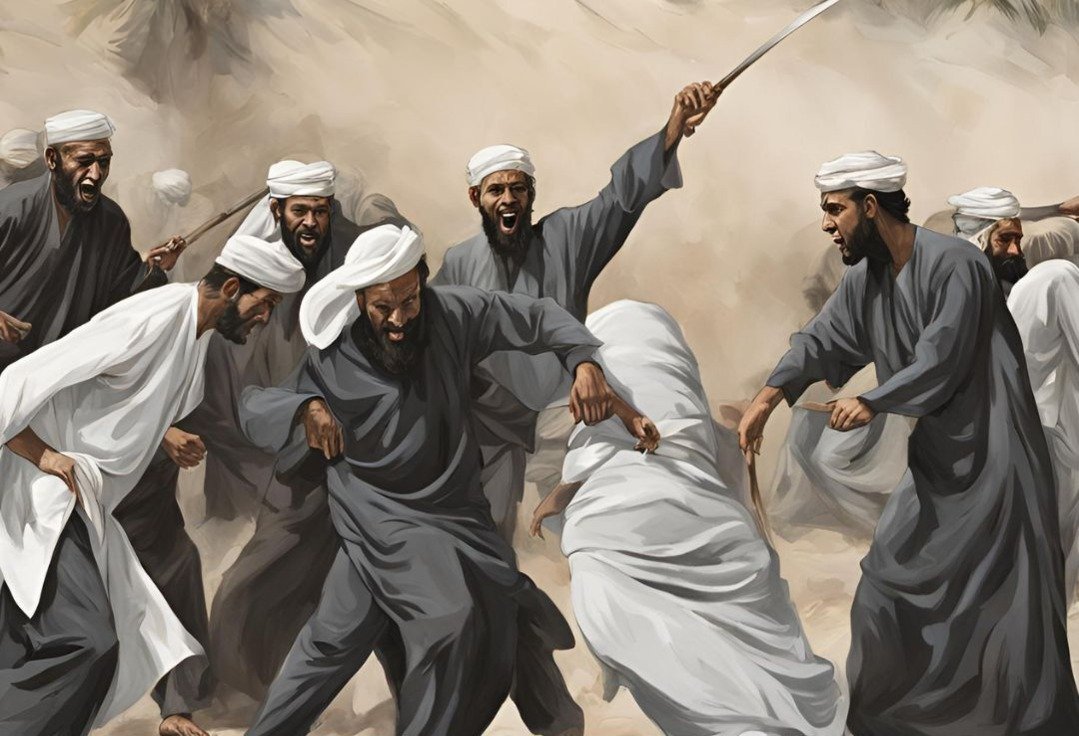 Distortions occurred in several ways:
Distortions occurred in several ways:
1. The people admired their Messenger's personality and miracles, and after his death, elevated him to a divine status, despite the Messenger's clear instructions to the contrary.
2. Excessive analysis of the life system led to different opinions and divisions within the community, causing conflicts and destruction.
3. Prioritizing less important directives over essential ones, undermining the entire system.
4. Restricting the interpretation and explanation of the life system to a specific class, creating a priesthood that manipulated the religion for their benefit.
5. Influential people altered directives that threatened their vested interests, leading to a focus on minor rituals instead of the system's core purpose.
Each life system became completely distorted, turning dynamic, purposeful religions into rigid, lifeless rituals. As a result, Allah sent another Messenger to guide people back to the true path.
Besides these distortions, another reason for sending new Messengers was human evolution. Over time, people advanced in knowledge and faced new circumstances and problems. Therefore, the life systems brought by later Messengers differed from earlier ones, although the fundamental truth of Allah's oneness and sovereignty remained the same. Differences were only in less critical matters, influenced by time and place.
Each Messenger conveyed essentially the same message, adapted to their time and place:
1. The previous Messenger's life system has been distorted, and you have deviated from the true path.
2. Recognize the new Messenger and the life system he brings as the valid one from now on.
3. The new Messenger is given signs and miracles to prove his truthfulness.
4. Accept the new life system and abandon the previous distorted one.
Responses to these messages varied: some accepted and established the new life system, while others rejected it and clung to the old, invalid systems. Some Messengers were accepted after their death, while others were entirely rejected or even killed.
Throughout history, those who accepted the new Messengers and life systems experienced peace and justice, while those who rejected them remained in unrest and were eventually destroyed. This pattern demonstrates the enduring struggle between divine guidance and human deviation, influenced by both spiritual insight and satanic temptation.
There is another type of person who does not accept and recognize the Messengers. These individuals initially oppose the Messenger, genuinely believing him to be false. However, later, when they witness the Messenger's character, signs, and miracles, they realize their mistake. Yet, their ego, pride, or whatever you call it, holds them back. Their pride says, "You've been calling him a fraud and preventing people from acknowledging him for so long! How can you bow down to him now without becoming a laughingstock?" The fear of appearing small (loss of face) prevents many from accepting the truth, even after realizing it. Although I presented several reasons for not accepting a true Messenger, fundamentally, all stem from pride (vanity). This is why every religion repeatedly emphasizes that even a trace of pride will prevent one from attaining salvation. Pride is one of the six human instincts (Shad-ripu), and interestingly, out of these six, only pride exists in both humans and Allah. This pride suits only Allah, not humans. Thus, the punishment for pride is swift and often happens in this life itself. I believe no other Satanic force is as powerful as pride in making people deny even the brightest truth.
We have discussed why Messengers have descended with one faith after another over the ages. It is essential to remember that despite the differences, all were fundamentally the same Islam, the eternal path, the simple, straightforward, and everlasting life system. When accepted and established in individual and collective lives, the inevitable result is peace and security, which Allah desires for us.
Currently, two misconceptions about Islam are prevalent. One is that the religion followed by the people known as Muslims is called Islam, and other religions are given different names. However, the truth is that from Adam (PBUH) to the last Messenger Muhammad (PBUH), all life systems sent by Allah were named Islam, meaning peace – a life system that, if followed, would allow humans to live in peace, and if rejected, would lead to unrest, bloodshed, and injustice as the angels mentioned.
The second misconception is the belief that Islam means submission to the will of Allah. This is also incorrect. If Allah willed, everyone would believe in Him at this moment. There would be no disbelievers, skeptics, or polytheists. Therefore, it is not about submitting to Allah's will. Allah has breathed His spirit into humans, endowing them with the power of reason, intellect, knowledge, and, most importantly, free will. He has shown them the path through His Messengers – a path that, if followed, would allow them to live peacefully without internal conflict and bloodshed. After that, He observes who follows this path and who does not.
Thus, Islam is not about surrendering to Allah's will but achieving peace by accepting and establishing His life system. If humans knew all the laws and principles governing this creation, they might have devised a life system that could bring peace, Islam. But they do not know this, as Allah has not given them that much knowledge. Therefore, the Creator has informed them through His Messengers which path to follow and which life system to accept to achieve that desired peace, Islam. This message has been conveyed through Messengers like Manu (PBUH), Krishna (PBUH), Yudhishthira (PBUH), Ibrahim (PBUH), Musa (PBUH), Isa (PBUH), and finally Muhammad (PBUH).
The Islam we talk about is not about refraining from killing animals or giving away a coat if someone steals your jacket. Such teachings are widely accepted, but the world is currently experiencing unprecedented unrest and bloodshed. In this century alone, those who hold such beliefs have caused massive wars twice, killing around 150 million people and destroying Hiroshima and Nagasaki, and now stand on the brink of complete human destruction with nuclear weapons.
Allah has sent His messengers to every nation and every region, guiding them with life systems so they could live in peace, avoiding conflict, injustice, and bloodshed (Quran, Surah An-Nahl 16:36). Some people accepted and established these systems, while others did not. In societies that accepted the divine life systems, politics, economics, and all aspects of life were governed by them. These systems were the law, and any attempt to implement human-made laws outside them would lead to rebellion.
Examining the history of regions like West Asia, we see that the Jews lived by the divine laws of monotheism established by Ibrahim (PBUH). In India, the historical texts like Ramayana and Mahabharata show that kings ruled according to scriptures, which were their constitution. The scriptures, based on divine revelations, provided laws interpreted by Brahmin priests and enforced by Kshatriya kings. The same was true in Europe, where kings ruled under the Pope's directives.
A question arises: if the law's source has always been divine, where did idolatry and Greek democracy come from? The answer lies in the distortion of religion. Satan's temptations and human selfishness led to polytheism and idol worship, even while claiming to follow the divine religion. The Greek experiment with democracy, although brief and limited, was influenced by religion, as evidenced by the strong religious symbols found in their temples and statues.
Combining all this information gives us a clear picture. Starting from the creation of man, we see that Adam (PBUH) lived by the divine life system, Islam, and lived peacefully with his descendants. Iblis tried to deviate humans from this system, leading to the first murder by Adam's (PBUH) son. When the divine law was sufficiently distorted, Allah sent the second Messenger. Some accepted the new system, while others clung to the old, leading to the emergence of two religions. As Adam's (PBUH) descendants multiplied and spread across the world, Messengers continued to arrive with the eternal religion, Islam, to ensure peace and prevent conflict and bloodshed.

Different Messengers existed in various regions simultaneously, ensuring that Allah's guidance reached every community. The constant struggle between divine guidance and
Satan's temptations led to the creation of new religions whenever the previous ones were distorted. Although many of these religions and their Messengers have been lost over time, the core message remains visible, albeit faintly and distorted by human intervention.
This is the true history of humanity – a continuous struggle between accepting divine guidance and succumbing to Satanic temptations. This eternal conflict between good and evil will continue, defining both our past and future. While philosophers like Karl Marx have offered partial explanations like class struggle, the complete truth encompasses the ongoing spiritual struggle between divine and satanic forces.
In conclusion, the fundamental issue is not merely the acknowledgment of divine laws but the implementation of a comprehensive life system to establish peace, justice, and harmony. This divine life system, Islam, has been conveyed through various Messengers to different communities throughout history, providing the means to live peacefully and justly in this world.
Images Related to this Post

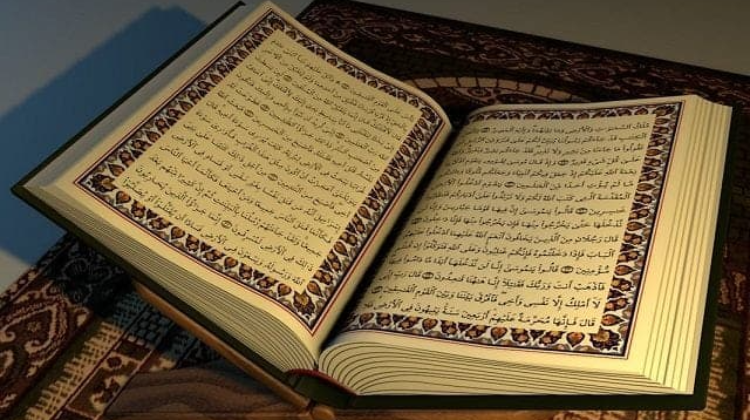

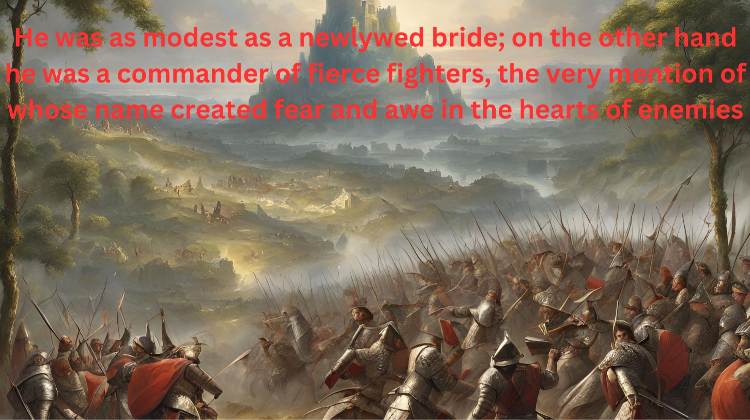
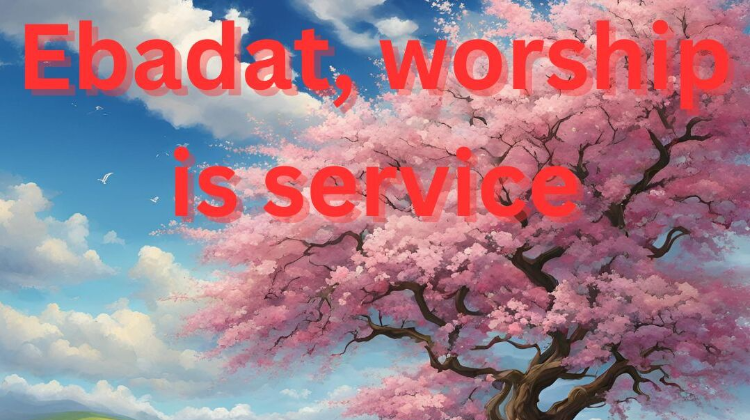
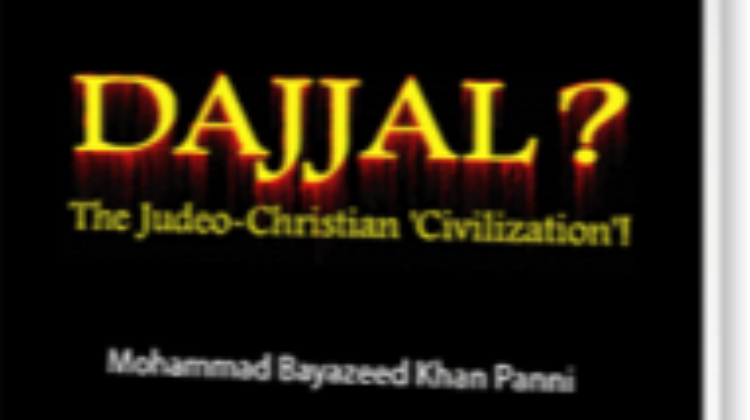
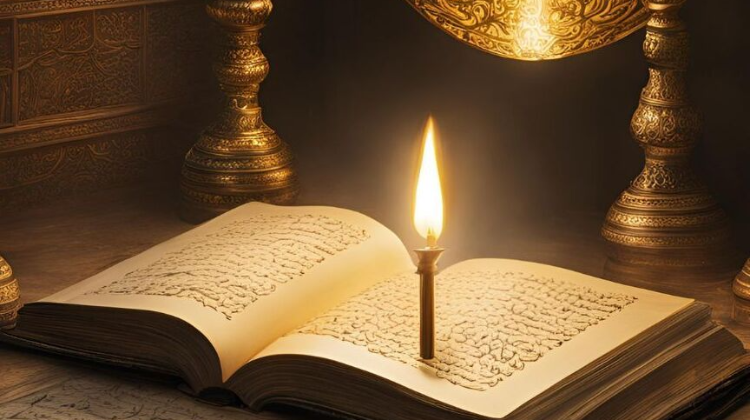
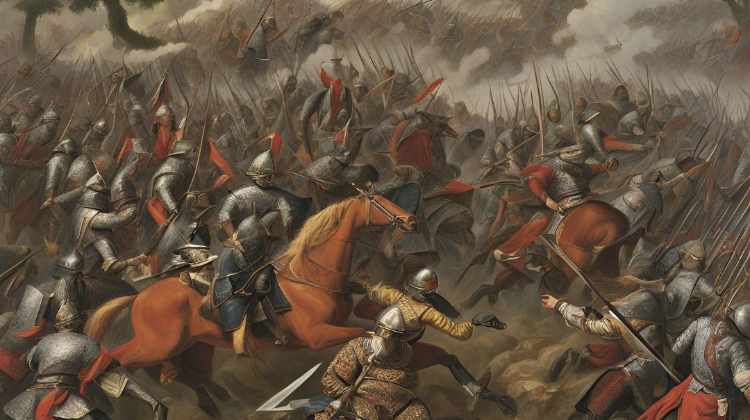
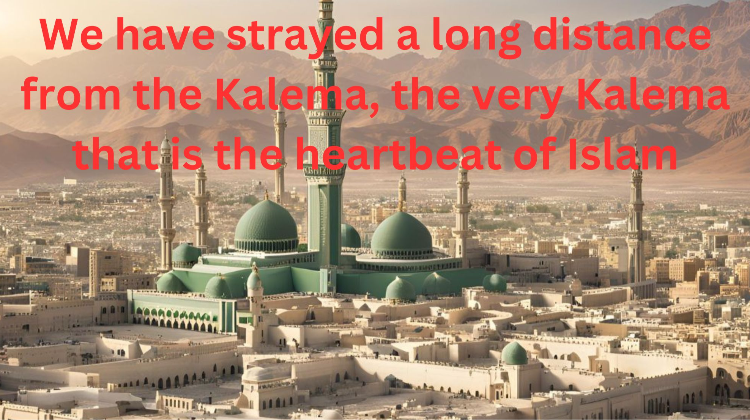
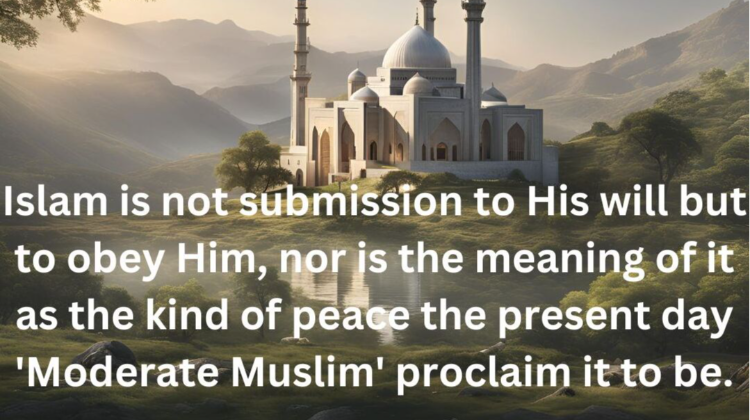

Leave a Comment